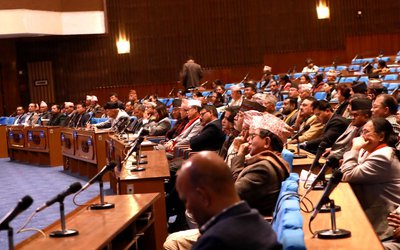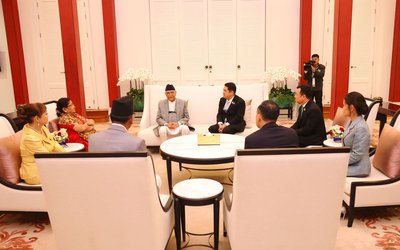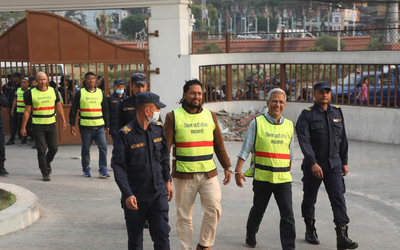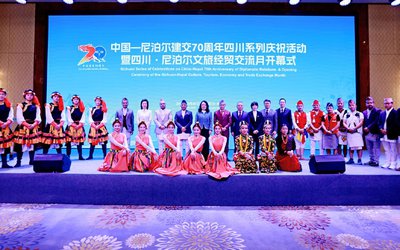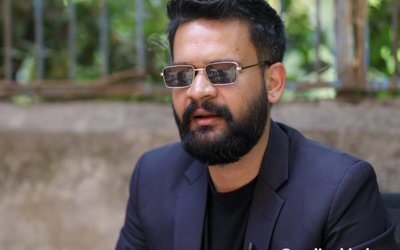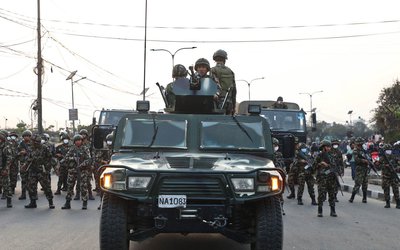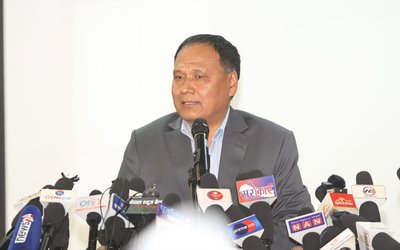
Korea International Cooperation Agency (KOICA) is partnering with United Nations Children Fund (UNICEF) to support the Government of Nepal to implement programs to improve maternal and neonatal care for unreached populations. An agreement was signed by KOICA Country Representative HaengLan Jo and UNICEF Nepal Representative Hanaa Singer in the presence of the Secretary of Health Dr. Praveen Mishra in the Ministry of Health and Population.
The financial support from the Government of Korea will be used by UNICEF to assist the Nepal government to scale up and enhance maternal, newborn and child health interventions as envisaged in the National Health Sector Support Program II (NHSP II). It will assist the government to ensure that the most marginalized and unreached populations will have access to quality services closer to their community, thereby improving the health and survival among women, neonates and children. Even today, only 36 per cent of births in Nepal are handled by skilled birth attendants, and although infant and child mortality rates have declined in the last decade, the stagnant neonatal mortality rates (33 per 1000 live births) is a major health concern.
“This is KOICA’s first collaborative project with UNICEF that aims to improve the health scenario of women and children of Nepal," said KOICA Chief HaengLan Jo at the signing ceremony. "I am confident that this partnership will support the Government of Nepal to implement the strategies envisioned to reach those populations most in need.”
KOICA has allocated USD$ 4,500,000 to UNICEF Nepal to be used specifically to strengthen the capacity of the health system from the national to sub-national levels: to make them more responsive to provide equitable gender and child friendly services; especially in the most deprived communities of the country. The programme will also work with care-givers, parents, families and communities in order to be more responsive and to make informed decisions to improve maternal, newborn and child health and hygiene.
"I believe that this new partnership will enable us to work with the government to reduce the current gaps of inequity in the health sector, by reaching the unreached – the most deprived and marginalised women and children in the most vulnerable districts from the western mountains to the eastern plains, " said Hanaa Singer, UNICEF Representative. “Nepal can benefit a lot from this partnership with KOICA, which is using the experience of Korea's growth from a poor country to one of the most economically advanced countries, for the sustainable socio-economic development of other developing nations. "
The high impact maternal and newborn programme will be implemented in 15 districts --Achham, Baitadi, Bajura, Bajhang, Dhanusha, Dolpa, Doti, Humla, Jumla, Kalikot, Mahottari, Mugu, Parsa, Rautahat and Saptari.
- IME GROUP: Expands Into Paper Industry
- Mar 24, 2025
- CPN UML: Instigated By India
- Mar 23, 2025
- ADB’S CHIEF ECONOMIST: Nepal Reduces Poverty
- Mar 11, 2025
- FM DR. DEUBA: A Successful Visit
- Mar 11, 2025
- MD GHISING: Target Of Personal Grudge
- Mar 09, 2025
